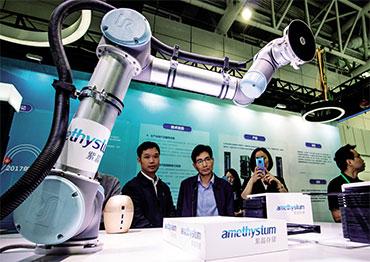The investigation started two years after Amethystum got listed in February 2020 and Essence in June 2020. Their illegal behaviors occurred before and after listing, an official investigation revealed.
In its prospectus, Amethystum inflated its revenue and profits through fabricated sales contracts, falsified logistics documents and fake invoices, investigators said.
Between 2017 and in the first half of 2019, Amethystum reported inflated revenues of 220 million yuan (US$30.79m) and inflated profits totaling 85.99 million yuan (US$12.04m), according to the CSRC’s release on April 21. During this time, the proportion of inflated to actual revenue increased every year, from an initial 13.9 percent to 42.97 percent. The proportion of inflated profits surged from 35.82 percent in 2017 to 137.33 percent.
Its prospectus claimed profits of 18.44 million yuan (US$2.58m) in the first half of 2019. But the total inflated profit was 25.33 million yuan (US$3.55), which means the company was 6.89 million yuan (US$964,378) in the red.
Essence’s fraud was more severe. Investigators found the company inflated its revenue by 340 million yuan (US$47.59m) and its profits by nearly 190 million yuan (US$26.59m) from 2016 to 2019 through fake contracts and bogus business deals with its fully owned subsidiaries.
Over the four years, the company’s proportion of inflated revenue to its actual revenue fluctuated around 50 percent, peaking at 59.67 percent in 2017. In 2019, right before its listing, inflated profits reached 65.28 million yuan (US$9.14m), accounting for 67.69 percent of its profit for that year.
Essence also ran at a loss during two of the four years covered by the prospectus. According to the CSRC, the gap indicates a loss of 1.01 million yuan (US$141,367) in 2016 and 1.93 million yuan (US$270,138) in 2018.
These inflated profits played a major part in its smooth listing. Among the sci-tech board’s IPO requirements is a minimum market value of 1 billion yuan (US$139.97m) and a two-year cumulative net profit prior to listing of no less than 50 million yuan (US$7m).
“Companies seeking to list may resort to fraudulent practices to turn losses into profits to maintain their eligibility,” said Chen Xuan, a veteran banking adviser.
“The enormous benefits of listing prompt some companies to take risks. In addition, the sci-tech board was new, so some intermediary agencies and the stock exchanges may not have done due diligence, which allowed the two companies to take advantage of this shortcoming,” Chen added.
As Essence was in the red in 2018, it was not eligible to list. But given its profits in 2019, the company likely met the board’s requirements for market value and profits. Nevertheless, it still committed fraud “probably to raise the market value of the company and win more investment from the stock market,” Zhong Huiyong said.
Chen Xuan said that the board’s price earnings ratio is relatively high, which means high stock valuation and higher risk for investors, so inflating profits helped Essence boost fundraising. “Without inflated profits, their fundraising scale would have been much smaller,” Chen said.
Some industry insiders believe that by inflating profits the company aimed to make it easier for shareholders to cash out.
Both companies continued their fraudulent practices after listing. In 2020, inflated profits accounted for 150.21 percent of Amethystum’s total profits. In 2021, the proportions of inflated revenue and profit for Essence reached 21.59 percent and 56.23 percent.
What’s more, both companies failed to reveal the external loans they guaranteed in their prospectus. Zhang Shengchao, a securities and investment banker, explained that guaranteed loans reflect a company’s debt scale. Too large a scale means financial changes and draws questions from brokers and media. “It was all done for smooth listing,” said Zhang, referring to the failed disclosure.
“A prospectus is an important reference for evaluating a company. If it provides false data, it will misguide investors,” said Zhong Huiyong, adding that such behavior “sets a bad example for other companies seeking IPOs and erodes trust in the market.”
These issues have tarnished the scitech board’s image. At the 14th Lujiazui Forum, a platform to encourage international financial cooperation, held on June 8 in Shanghai, Qiu Yong, chairman of the Shanghai Stock Exchange, stated that the board has become the first choice for Chinese “hard-tech” companies (those based on innovation and with high technical thresholds) to go public.
At the end of May, STAR had 528 listed companies that had raised a total of 822 billion yuan (US$115.05b) through IPOs, according to Wind Information, a financial data provider. The funds were mainly concentrated in industries such as information technology, biotechnology, and high-end equipment manufacturing.

 Old Version
Old Version

